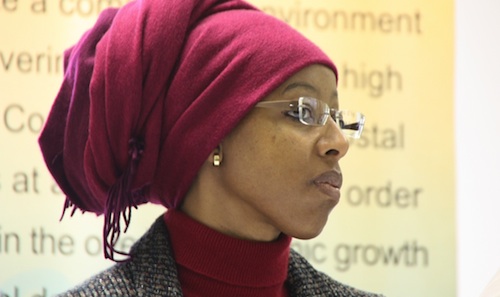
The Independent Communications Authority of SA (Icasa) has begun the process of opening up so-called “high-demand spectrum bands” that will eventually pave the way to the introduction of fourth-generation (4G) mobile broadband networks in SA.
The authority has decided to tie spectrum allocations in the 2,6GHz and 800MHz bands and to offer access to frequencies in the lower of the two bands on a wholesale, open-access model, where operators share networks and compete at a retail level.
However, in a move that could prove highly contentious among operators, Icasa proposes that wholesale network providers be prohibited from also playing in the retail market and must provide services on a nondiscriminatory basis and allow any content, applications and services to flow over these networks.
It says it wants to move away from “traditional win-lose licensing methods and is considering using new licensing methods that encourage sharing, such as open-access models and ‘spectrum parks’ to maximise the number of new entrants in the sector”.
Under the “spectrum parks” model, Icasa wants to allow a number of entities to participate in sharing common spectrum on a self-managed basis.
By opening the spectrum to both incumbents and new operators, Icasa hopes to facilitate the introduction of new national and rural providers of broadband and other telecommunications services and to contribute to broad-based black economic empowerment. Applicants wishing to get access to the spectrum will need to have at least 30% of their equity in the hands of “historically disadvantaged individuals”. Among the incumbent operators, this puts Vodacom and Telkom in a tight spot, as they fail to meet this criterion.
Icasa had previously said it would license spectrum in the 2,6GHz and 3,5GHz bands, and deal with the 800MHz band — the so-called “digital dividend” currently used for analogue television broadcasts — at a later date. It has now decided to tie licensing of 800MHz and 2,6GHz and to put off the process of opening up 3,5GHz to a later date.
It is doing this, says Icasa councillor Marcia Socikwa, to “reflect alignment with international trends”. The 800MHz and 2,6GHz bands are proving popular frequencies worldwide for operators wanting to deploy next-generation broadband networks using a technology called long-term evolution (LTE). LTE networks will eventually lead to the introduction of 4G systems.
“The 800MHz band is a perfect candidate for wireless broadband access because it has excellent coverage characteristics and is highly suitable for rural coverage and will allow the authority to address government’s broadband policy, which aims to achieve universal broadband access by 2019,” says Socikwa. “Furthermore, it technically complements the 2,6GHz band.”
However, access to the 800MHz band will only be made available to telecoms operators once broadcasters have migrated from analogue to digital television, which is meant to happen by the end of 2013, a date the broadcasters feel can’t be met.
Under its plan, Icasa is dividing the 800MHz and 2,6GHz bands into linked blocks of spectrum. State-owned Sentech will be offered access to both bands in return for it giving up 20MHz of its existing allocation at 2,6GHz. Sentech will build a wholesale, open-access network using the frequency it is allocated.
To encourage new entrants, Icasa wants two of the paired blocks to be assigned to network licensees that currently have no spectrum allocated in designated bands used for cellular services. One paired block will be assigned to a network licensee to provide a network based on wholesale open-access conditions.
Spectrum has also been set aside for the “spectrum park”, but this will only be allocated at a later date, according to Icasa.
The authority has also proposed tough roll-out obligations. Those with access to both bands must provide 70% geographic coverage within five years, of which 50% must exclude Gauteng, Cape Town and Durban. Those with access to 2,6GHz only must provide 50% population coverage within four years.
Socikwa says Icasa wants to avoid having to auction spectrum, and adds this will only be done “as a last resort”. Where companies fail to use frequencies assigned to them, Icasa says it will “take steps to take back the spectrum”.
In a move that is certain to upset industry players, especially given the country is headed into the year-end holiday shutdown, Icasa has set a tight deadline of 31 January 2012 for interested parties to comment on the proposed plans. It expects to hold public hearings in the second week in February. — Duncan McLeod, TechCentral
- Subscribe to our free daily newsletter
- Follow us on Twitter or on Facebook
- Visit our sister website, SportsCentral (still in beta)

